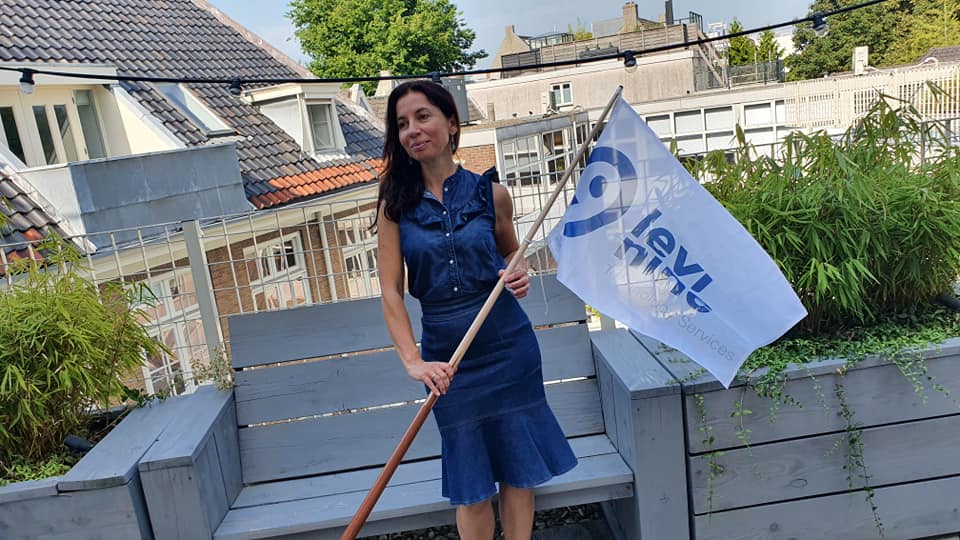Companies are interested in building long-term relationships with specialists and creating appropriate conditions for the development of IT talent. At the same time, the path from junior to senior takes more than a year. How to grow a specialist within the company while maintaining team efficiency, and whether it is possible to pave a quick path to a senior position, are discussed in this article.
The structure of a project team is a pyramid, in which the distribution of seniority is individual and depends on the complexity of the project and tasks. Classically, it is one senior, two middle, and three junior specialists. In this case, no one acts solely in their own interests, and a balance of professionalism and enthusiasm is maintained, which contributes to development: young professionals practice, and experienced ones fuel interest by acting as mentors.
Due to the war and the economic downturn around the world, the balance in the IT labour market has been shaken – there are three times fewer offers than candidates in search, and they are mostly for experienced developers. The dynamics show that, compared to 2021, companies are less active in hiring juniors. In addition to the change in the approach to project work, the reason is the lack of practical experience in working on business tasks, and communication with the team and the client.
Instead, adding a junior or mid-level engineer to the team brings positive results. New people bring ideas, a fresh vision, and knowledge from other areas. At the same time, juniors are motivated to grow and are interested in most projects because they are looking for their own area of interest and are eager to learn.
Training is the work of a specialist
The career growth of a specialist and how fast it happens is the interaction between mentor and mentee and the responsibility of both parties. A specialist should be willing to develop, be interested in new developments in the industry and take on more complex tasks every time. At the same time, knowledge must be applied in practice and the ability to filter information, i.e. to think critically.
In their work, juniors observe the work of more experienced colleagues and absorb knowledge and skills from them. The company’s role in the development of a specialist is not to provide targeted training like at school, but to create conditions that everyone can use and improve their skills. Following the example of Levi9, all specialists can study online on Udemy, Pluralsight and other platforms, attend the company’s soft skills and technical trainings, and participate in internal hackathons.
Recipe for a career boost
There is no universal list of tools that companies can use to help develop IT professionals. Instead, there are components that companies can consider – the so-called magic pills.
Magic pill #1: Keep track of progress
It is worth monitoring the professional dynamics of specialists in the workplace to notice progress in time. If you see that a junior developer has become faster at completing tasks, bolder in communicating with clients, or has learned a new technology, let them prove themselves and offer them new responsibilities.
The following situation often arises: experienced developers deal with complex tasks, while juniors are given more basic, “rough” tasks. At the same time, they don’t let them work on their own, because they are afraid that they won’t be able to cope. With such a work structure, a young specialist can be demotivated, which will harm both him or her and the team.
Magic pill #2: Develop non-linearly
A specialist in a company doesn’t have to move in a straight line from point A to B – you can change projects and create a product for other markets or develop in related areas. For example, if you are engaged in front-end development, you can also learn the back-end and become a Full Stack engineer.
You can acquire and improve new skills in the following ways:
- Learning by doing, i.e. working directly in a team or individually with mentors who can be more experienced colleagues.
- Learning by learning, i.e. through training, obtaining certificates and new qualifications.
- Learning by sharing, when specialists become teachers themselves. By sharing their experience, they also develop, systematize their knowledge, and learn from others. At Levi9, for example, we are actively developing specialized communities, within which we hold internal meetups, knowledge sharing sessions, etc. One of these initiatives is TechIn (Technical Culture Invigoration), which brings together developers with different areas of interest, from blockchain to cybersecurity.
It is also important to prevent a situation where a specialist is “frozen” on a project. For this purpose, rotations are carried out, for which department managers and talent partners are responsible. They help the specialist develop, draw up a personal development plan, and respond promptly to any changes.
Sometimes a specialist needs to be pushed to change direction or improve their skills. This can be done at the right time by holding regular coaching sessions with team members. In the process, you should develop an action plan to achieve the desired result and the criteria by which the goal is considered achieved.
Magic pill #3: Focus on individuality
It is worth looking at the interests and personality of specialists. Junior specialists are usually just getting to know the industry, so more experienced colleagues can advise them on what to study, what skills to improve, and in which direction to develop. By noticing a specialist’s strengths and talents in time, you can help them grow professionally and, in addition, build strong and lasting relationships.
If a specialist is interested, he or she wants to go deeper into the process and take on more complex tasks, while growing without overdoing it. Young professionals often know what they want to work on, so it’s important to build a working relationship where the junior is not afraid to voice their wishes and encourage initiative whenever possible. It’s always a win-win strategy, because the mentor gets a motivated employee, and the newcomer gets a task or project that they enjoy working on.
In general, a person is most effective and productive in those areas of activity for which he or she has a talent and aptitude. We had a case at Frontend Academy where a student had a hard time with her internship. However, the mentor noticed that she was good at describing tasks and problems and had a strong English. He offered her to try herself as a Technical Writer and everything worked out. Or another case is when, after working with a certain stack for a long time, specialists decide to change direction. For example, from a tester to a Java developer. It doesn’t happen quickly, but with the right mentoring and development plan, anything is possible.
Risks of growing too fast
If you grow quickly, there is a risk for a specialist to overestimate their skills and assume that they already know and can do everything. Having reached what they think is the ceiling, such a specialist no longer wants to develop in the profession and, as a result, ceases to be highly valued in the market.
The quality and diversity of experience also vary. Growth should be accompanied by challenges – if you do something well, tomorrow you have to do even better, more or in a different direction.
Let’s say a specialist has been performing the same tasks on a project for three years. He has perfected his technique and is the best in the team at understanding the topic. In terms of years, they can apply for a higher position, but they have no skills in a related field and cannot take responsibility for another project. Another situation is when, over the same three years, a specialist in the same environment tried himself in new areas of development every year. He or she has developed versatility, gained skills in related fields, and thus can handle more complex tasks.
The opportunities for learning in IT are unlimited. It is a continuous process without a finish line, which can be compared to a craft: the deeper the knowledge of the “master”, the better he or she is at the “technique”.
In this article:
Talent L&D Manager
Levi9








